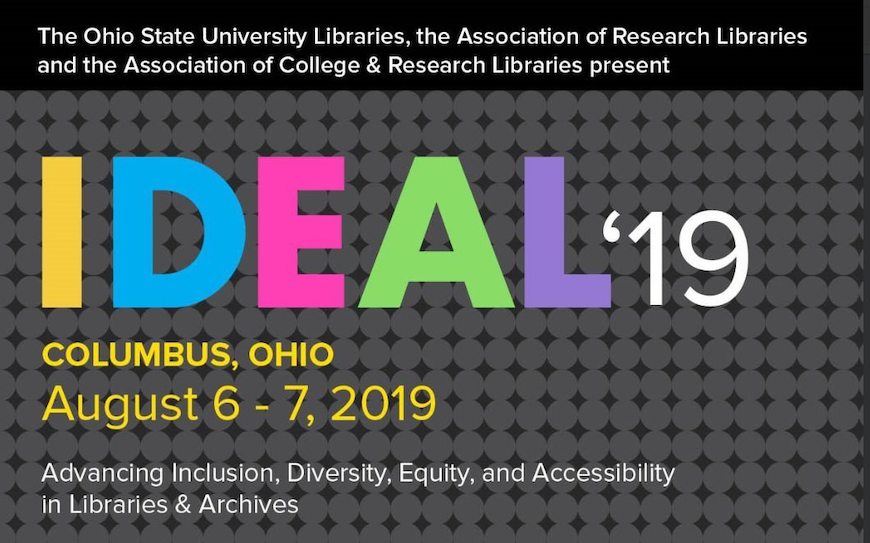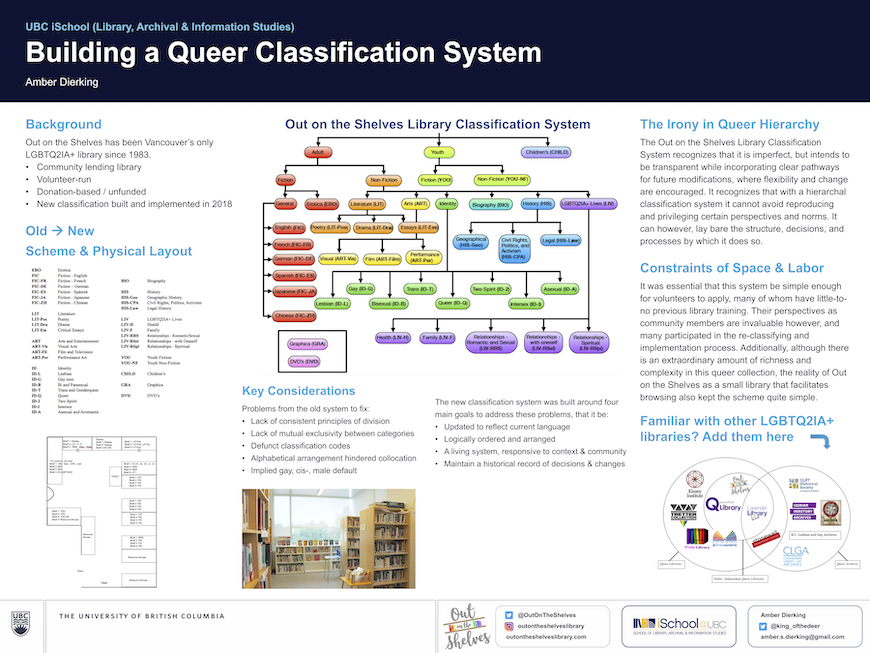
Formerly the National Diversity in Libraries Conference, the IDEAL conference is an annual event that 'will provide an opportunity for professionals at every level and across sectors to discuss how increasing workplace diversity and creating an inclusive workplace environment improves organizational effectiveness, creativity, adaptability, and relevance to the communities served by the organization.' This year's festivities were held on the Ohio State University campus in Columbus, Ohio on August 6-7 and featured keynote speakers Kimberlé Crenshaw, Professor of Law at UCLA and Columbia Law School, and Nikole Hannah-Jones, investigative reporter for The New York Times Magazine.
'Being my first conference, I wasn't sure what to expect, but in the end I was blown away by the depth and range of the discussions I was able to attend.' – Leah Zande, Materials Processing Coordinator
As members of the Diversity, Equality & Inclusion Collective in the University Libraries, Materials Processing Coordinator Leah Zande and Library Programming and Engagement Coordinator Andy Prisbylla represented the libraries during this two-day schedule of events. The recent mass shootings in El Paso, Texas and Dayton, Ohio, - along with the sudden death of author and activist Toni Morrison – helped to solidify the conference's mission of awareness and brought a strong level of solidarity to its participants. The conference kicked off with an opening keynote address by Crenshaw, who spoke about Critical Race Theory and Intersectionality. As two major foundations of thought relevant to the country's current socio-political initiatives in diversity and inclusion, Critical Race Theory allows others to understand systemic racism through the lens of those affected by the cultural perceptions of race, while Intersectionality looks at the overlapping and interconnected nature of race, class and gender, and how these categorizations are interdependent in both discrimination and disadvantage. These two theories formed the backbone of the conference and set the tone for the forthcoming workshops and programming.
"For someone who grew up in one of the most socio-economically depressed areas in the United States, I've witnessed first-hand the effect that poverty compounded with inequality can have on a population. It was amazing for me to see my internal feelings verbalized so eloquently by Kimberle' Crenshaw and her explanation of Intersectionality, and how this relates not only to those of color but to the rest of society as well." – Andy Prisbylla, Library Programming and Engagement Coordinator.
Numerous librarians and library professionals from across the nation offered workshops and lectures, giving insight into how to better incorporate diversity and equality not only in services but within the workplace as well. Jesus Espinoza and Larry Wentzel from the University of Michigan Libraries spoke of the Communication Recovery Model, which shows the importance of apologizing and how to reflect and recover from mistakes in the moments after a communication misstep. Another talk entitled Accessibility Policy Creation: From the Beginning to the Future showed the importance of accurate service in Electronic Technology Accessibility and how to successfully implement this into your library. In addition to these presentations, dozens of posters were designed by librarians across the nation and displayed throughout the conference center. These posters covered a wide-range of topics from creating a diversity committee to building a library classification system that accurately reflects LGBT2QIA language and historical record.

In all, over 632 individuals attended the IDEAL'19 Conference in an attempt to better understand how to make the library a more diverse and equal institution. The proceedings commenced with an ending keynote presentation by Hannah-Jones, who reminded us of the historical hypocrisy inherent in our current social reforms, and the importance of 'reshaping national conversations around educational reform.' IDEAL '19 not only achieved this goal through creating a dialogue for all to share, but by setting a tone that all libraries of the future should follow.
Don't forget, October is LGBT History Month, where we celebrate the achievements of lesbian, gay, bisexual and transgender icons.
